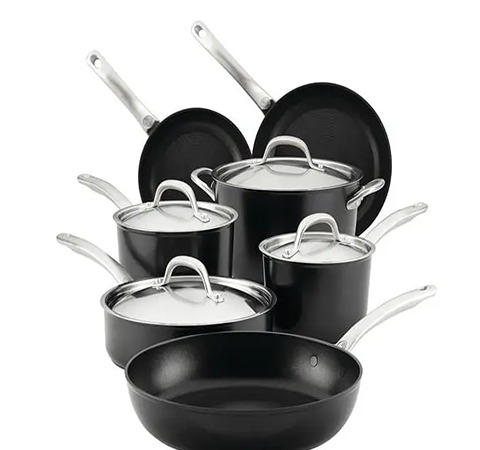Choosing the right cookware is essential for any culinary enthusiast or professional chef. Among the various options available, cast iron and aluminium are two popular choices that offer unique advantages and features.

Heat Retention and Distribution
Cast Iron: Cast iron is known for its exceptional heat retention properties, allowing it to distribute heat evenly throughout the cookware.
This characteristic makes it ideal for slow cooking and maintaining consistent temperatures, resulting in perfectly cooked meals.
Aluminium: Aluminium cookware offers excellent heat conductivity, meaning it heats up quickly and evenly.
However, it may not retain heat as effectively as cast iron, which can lead to inconsistent cooking temperatures.

Durability
Cast Iron: Cast iron cookware is renowned for its durability and longevity.
It can withstand high heat, heavy use, and even accidental drops without easily breaking or scratching.
With proper care and maintenance, cast iron cookware can last for generations.
Aluminium: While aluminium cookware is lightweight and easy to handle, it is generally less durable than cast iron.
It can warp or dent under high heat or pressure, which may require frequent replacement.
Versatility
Cast Iron: Cast iron cookware can be used on a variety of cooking surfaces, including stovetops, ovens, grills, and even campfires.
It is well-suited for various cooking techniques such as frying, braising, baking, and roasting.
Additionally, cast iron develops a naturally non-stick surface over time, requiring minimal oil or fat for cooking.
Aluminium: Aluminium cookware is also versatile and can be used for various cooking methods.
However, caution should be exercised when using aluminium on high heat or acidic ingredients, as it may react and affect the taste of the food.

Health Considerations
Cast Iron: Cooking with cast iron has health benefits. When seasoned properly, the seasoning layer acts as a natural non-stick surface, eliminating the need for potentially harmful chemicals found in non-stick coatings.
Additionally, cooking with cast iron can increase the iron content in your food, particularly beneficial for individuals with iron deficiencies.
Aluminium: Some studies suggest that excessive intake of aluminium can be harmful to health.
However, the likelihood of aluminium leaching into food from properly coated or anodized aluminium cookware is minimal.
It is advisable to check the quality and coatings of aluminium cookware to ensure safety.

Conclusion
Both cast iron and aluminium cookware offer distinct advantages based on individual preferences and cooking styles.
Cast iron provides exceptional heat retention, durability, versatility, and health benefits, making it a popular choice for many chefs.
On the other hand, aluminium offers faster heat conductivity and is lightweight, making it advantageous for quick cooking or when portability is essential.
Considering the pros and cons of each material, it is important to assess your cooking needs and preferences before making a decision.
Whether you opt for the timeless durability of cast iron or the lightweight convenience of aluminium, investing in high-quality cookware will enhance your culinary journey for years to come.
